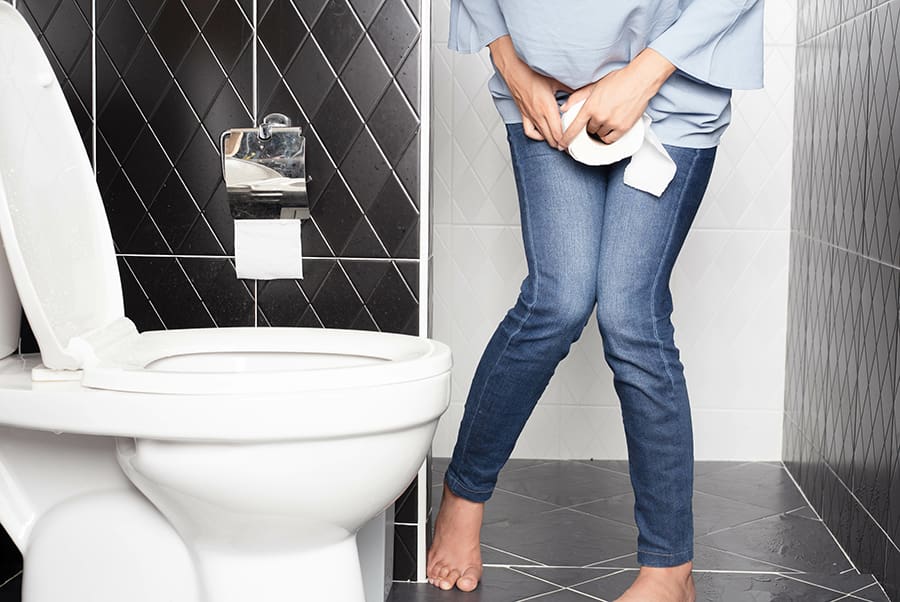
By Akers Editorial
Ask The Expert: Urogynecology

Expert: Bela Kudish, MD, MS, FACOG
Board-certified and fellowship trained in urogynecology and pelvic reconstructive surgery, Dr. Kudish is a Russian native who relocated to the U.S. as a teenager. In addition to decades of experience and formal medical training, she holds a master’s degree in Clinical Research and Statistical Analysis from the University of Michigan. She has authored multiple important research studies and publications in urogynecology.
What is Dr. Kudish’s training and background, including fellowships and board certifications?
After graduating from the University of Scranton in Pennsylvania in 1995 and enrolling at the University of Rochester School of Medicine and Dentistry in Rochester, New York, Dr. Kudish earned her medical doctorate in 2000. She began her obstetrics and gynecology residency at Wayne State University/Detroit Medical Center Hutzel Hospital in Detroit, Michigan. In 2007, Dr. Kudish completed a female pelvic medicine and reconstructive surgery fellowship at Washington Hospital Center/Georgetown University in Washington, D.C.
What is urogynecology and how does it differ from general gynecology or urology?
Urogynecology is a specialized field that combines aspects of both gynecology and urology to address issues related to the female pelvic floor. This includes problems like urinary incontinence, pelvic organ prolapse, and other conditions that affect the bladder, reproductive organs, and bowels. While general gynecology focuses on the overall health of the female reproductive system, and urology deals with the urinary tract and male and female reproductive organs, urogynecology specifically addresses the overlap between these areas, particularly concerning the pelvic floor’s structure and function in women.
What are some of the most common conditions treated in your practice?
Among the most common conditions we treat are urinary incontinence, where a person leaks urine accidentally, and pelvic organ prolapse, which happens when the pelvic organs like the bladder, uterus, or rectum slip out of place. I also address overactive bladder, which causes a sudden, strong urge to urinate, and fecal incontinence, where there’s accidental leakage of stool. Other issues include recurrent urinary tract infections, painful intercourse, painful bladder syndrome, and various pelvic floor disorders that can cause discomfort, pain, or difficulties with bowel and bladder functions. My goal is to help patients manage these conditions through a variety of treatments, ranging from lifestyle changes and physical therapy to medications and surgery.
How do you diagnose and treat complex urogynecological conditions?
When diagnosing and treating more complex urogynecological conditions, I utilize a personalized, multidisciplinary approach. I begin by meeting with each patient to ensure I have their detailed medical history, including past medical and surgical history and treatments, and discuss their symptoms and lifestyle. A pelvic examination is then conducted, where I check for signs of prolapse, muscle strength, and any areas of tenderness or abnormality. Advanced diagnostic testing may be utilized, such as urodynamic testing, cystoscopy, MRI or CT scans. Based on the diagnostic findings, I develop a personalized treatment plan. This may include lifestyle modifications, pelvic floor physical therapy, medication and/or minimally invasive procedures. For more severe cases, surgical options may be recommended.

How do you address sensitive or difficult topics with patients?
Talking about topics concerning pelvic health and urinary issues requires a compassionate and thoughtful approach. I believe that clear communication, empathy, and ongoing support assist in putting patients at ease when addressing sensitive topics and help my patients feel more comfortable when discussing pelvic health and urinary issues.
What is most rewarding about working in urogynecology?
Many of the conditions I treat can significantly impact a woman’s daily life. Helping my patients regain control and comfort can dramatically enhance their overall quality of life. Empowering my patients and helping them take an active role in their health is incredibly rewarding.
What specific services and treatments does UF Health Medical Group Urogynecology offer that may not be readily available elsewhere?
At UF Health Medical Group Urogynecology, we offer a state-of-the-art pelvic floor program using individualized treatment plans to improve quality of life and pelvic floor health at any stage of life, including:
· A full spectrum of care for pelvic floor disorders, including urinary incontinence, fecal incontinence, and pelvic organ prolapse.
· Advanced diagnostic techniques utilizing state-of-the-art diagnostic tools to accurately diagnose pelvic floor disorders and create precise treatment plans.
· Minimally invasive surgical techniques, including robotic-assisted surgery and laparoscopic procedures. These approaches often result in shorter recovery times, less pain, and reduced scarring compared to traditional surgery.
· Pelvic floor physical therapy focuses on strengthening the pelvic floor muscles, which can be an effective treatment for many pelvic floor disorders.
· Pessary fitting and management can help patients with pelvic organ prolapse who prefer non-surgical treatment.
· Collaboration with other specialists, including colorectal surgeons, urologists, and physical therapists ensures that patients receive the most effective and personalized treatment.
· Participation in cutting-edge research and clinical trials may offer new and emerging treatments that are not yet widely available.
· Patient Education and Support includes personalized education sessions and support groups.
These unique services and treatments highlight UF Health Medical Group Urogynecology’s commitment to providing comprehensive, advanced, and patient-centered care.










































